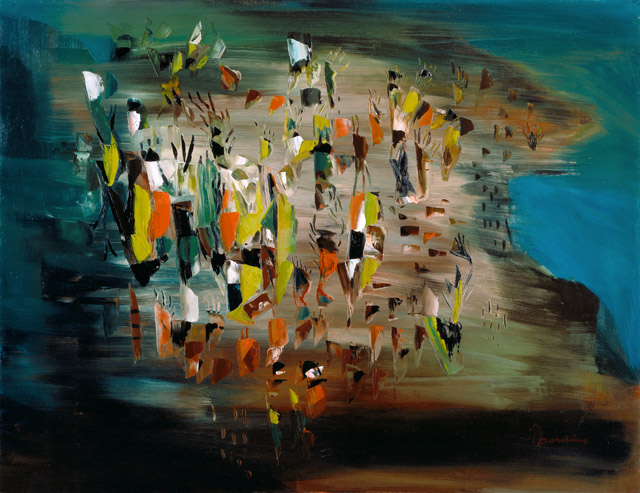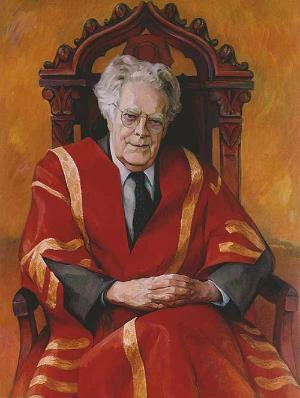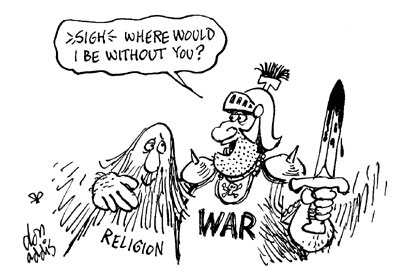
Paul-Émile Borduas, “Leeward of the Island (1.47),” 1947, National Gallery of Canada
At the end of The Modern Century, Frye speaks of a
genuine America buried underneath the America of bustling capitalism which occupies the same place. This buried America is an ideal that emerges in Thoreau, Whitman, and the personality of Lincoln. All nations have such a buried and uncreated ideal, the lost world of the lamb, and the child, and no nation has been more preoccupied with it than Canada.
He then goes on to mention Tom Thomson, Emily Carr, Riopelle, Borduas, and of Pratt and Nelligan, as well as the novels of Grove and artists and writers he sees as constantly in search of that ideal, that “something to be found that has not been found, something to be heard that the world is too noisy to let us hear.”
If there is a genuine Canada, it seems all the more elusive today. It is hard to believe that the cynicism and dishonesty of the current government has had, if we are to trust the polls, so little impact on a disturbingly large part of the electorate. Elsewhere, with reference to the inability of the NDP ever to garner enough support to win federal power, Frye pithily observes: “Principles make voters nervous, and yet any departure from them towards expediency makes them suspicious” (CW 12: 644). We can only hope that the current government’s venality and contempt for democracy, not to mention the wishes of his fellow citizens in the name of “stability” and a spurious economic expediency, will create enough suspicion to defeat Harper once and for all.
The Modern Century was published in 1967, the year of Canada’s centenary. Whatever ensues in the upcoming ballot, the eloquent words of the closing peroration are worth keeping in mind over the next weeks:
One of the derivations proposed for the word Canada is a Portuguese phrase meaning “nobody here.” The etymology of the word Utopia is very similar, and perhaps the real Canada is an ideal with nobody in it. The Canada to which we really do owe loyalty is the Canada that we have failed to create. In a year bound to be full of the discussions of our identity, I would like to suggest that our identity, like the real identity of all nations, is the one that we have failed to achieve. It is expressed in our culture, but not attained in our life, just as Blake’s new Jerusalem to be built in England’s green and pleasant land is no less a genuine ideal for not having been built there. What there is left of the Canadian nation may well be destroyed by the kind of sectarian bickering which is so much more interesting to many people than genuine human life. But, as we enter a second century contemplating a world where power and success express themselves so much in stentorian lying, hypnotized leadership, and panic-stricken suppression of freedom and criticism, the uncreated identity of Canada may be after all not so bad a heritage to take with us.


